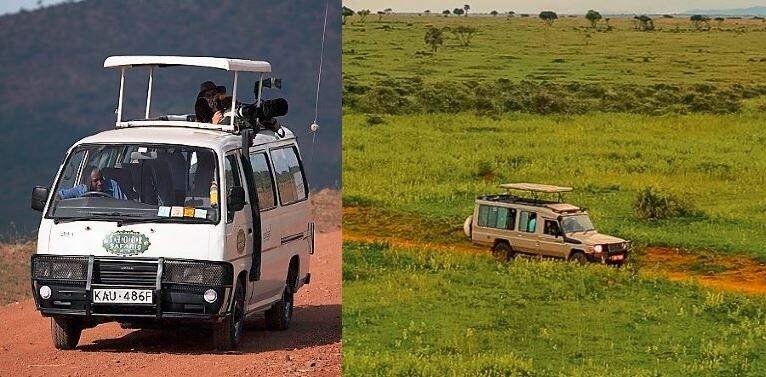Kenya’s diverse landscape provides fertile ground for various agricultural ventures. Among these, passion fruit farming has emerged as a promising and lucrative enterprise that has captured the attention of both experienced farmers and newcomers to the agribusiness scene. If you intend to venture into farming, this ultimate guide will help unlock the secrets to a thriving passion for fruit farming in Kenya.
Cost of Passion Fruit Farming in Kenya
The cost of farming passion fruit in Kenya can vary significantly depending on various factors, including the scale of the operation, location, and farming practices employed. Here are various costs:
1. Land Preparation
Land preparation is essential before planting passion fruit, and it is one of the significant costs. This includes clearing the land, plowing, and creating planting pits. The cost of land preparation may range from Ksh 20,000 to Ksh 100,000 per acre, depending on the condition of the land and production practices.
Also Read: Butternut Farming In Kenya: Unlocking The Golden Harvest
2. Seedlings
Passion fruit seedlings can be purchased from nurseries or propagated from seeds. The cost of the seedling depends on the nursery source and variety. The propagated seedlings are costly but have a high survival rate. On average, a single seedling can cost between Ksh 50 to Ksh 100. For an acre, the cost is between 40,000 and 100,000, depending on the variety and planting density.
3. Trellising and Support Structures
Passion fruit plants require trellises or support structures to grow vertically and avoid breaking from crop weight. The cost of materials for constructing trellises varies, but it could range from Ksh 20,000 to Ksh 60,000 per acre. Labor costs for installation should also be factored in.
Find Out: Garlic Farming Profit Per Acre In Kenya
4. Fertilizers and Soil Amendments
Soil testing is essential to determine the soil’s nutrient needs. You can use organic or inorganic fertilizers based on the cost and availability. Inorganic fertilizers are more costly than organic ones but take a shorter time to release the nutrients into the soil. Depending on the application rate and type, fertilizers cost 30,000-50,000.
5. Pest and Disease Control
Passion fruit plants are susceptible to pests and diseases like bacterial wilt, fruit flies, and mites. The budget for pesticides, herbicides, and fungicides may cost around Ksh 15,000 to Ksh 30,000 per acre per year, depending on the control measure applied and infestation extent. Monitoring and controlling pests and diseases regularly is essential to prevent crop loss.
6. Labor Cost
Labor costs include land preparation, planting, weeding, pruning, and harvesting. This cost can vary depending on the availability of labor, location, and farm size. It can range from Ksh 120,000 to Ksh 150,000 per acre annually.
7. Irrigation System
Kenya experiences varying rainfall patterns, so installing an irrigation system is crucial for ensuring a consistent water supply. Farmers can use overhead sprinklers or drip irrigation depending on the farm size and available resources. The cost of setting up an irrigation system can range from Ksh 50,000 to Ksh 150,000 per acre, depending on the system’s complexity.
8. Miscellaneous Expenses
Other costs to consider include transportation, marketing, and administrative expenses. These may vary greatly depending on your location and business model.
Profitability of Passion Fruit in Kenya
The current cost per kilogram of passion fruit in Kenya typically ranges between 60 to 100 Kenyan Shillings (Ksh). However, it’s essential to note that market prices can fluctuate over time due to various factors, including seasonal variations and market demand.
Yield is a crucial factor in determining the profitability of passion fruit farming. On average, a mature passion fruit vine can yield between 20 to 30 kilograms of fruit per vine per year. This yield can vary based on climate, soil quality, and the level of care provided to the plants.
Production costs include expenses associated with land preparation, planting, pest and disease management, irrigation, and labor. The exact production costs can vary depending on the scale of farming, location, and specific farming practices. On average, establishing and maintaining a passion fruit farm may cost between 300,000 to 500,000 Ksh per acre.
To calculate profit, we can use a simplified example:
- Suppose you have a yield of 25,000kgs per acre annually at a selling price of 80 Ksh per kilogram; your total annual revenue would be 2,000,000 Ksh (25,000 kg x 80 Ksh per kg).
- Subtracting your production costs of 500,000 Ksh per acre, your profit would be 1,500,000 Ksh (2.000,000 Ksh – 500,000 Ksh).
It’s important to note that this is a simplified calculation, and actual profits can vary based on several factors, including market fluctuations, weather conditions, and farm management.
Benefits of Passion Fruit Farming in Kenya
Here are some of the key benefits of cultivating passion fruits in Kenya:
- High Demand: There is a consistent and growing demand for passion fruits in Kenya, both in the local market and for export. The fruit is popular for its unique flavor and nutritional value, making it a profitable crop choice.
- Easy to Maintain: Passion fruit vines are relatively easy to grow and maintain, making them suitable for experienced and novice farmers. They don’t require extensive agricultural expertise or complex farming techniques.
- Intercropping Potential: Passion fruit can be intercropped with other crops, such as maize, beans, or vegetables. This can maximize land use efficiency and diversify income sources for farmers.
- Three-Year Long Harvest: Once established, passion fruit vines can provide a continuous harvest for up to three years. This long harvest period ensures a consistent income stream for farmers.
- Suitable for Small Pieces of Land: Passion fruit farming can be adapted to small plots of land, making it accessible to farmers with limited resources. This flexibility allows more people to participate in the industry.
Passion fruit crop management
To maximize the potential of your passion fruit crop, it’s important to delve into each of these aspects with depth and care.
Watering
Watering is one of the fundamental elements in passion fruit crop management. These vines require consistent moisture, especially during the growing season. Adequate watering is crucial, but overwatering can be detrimental.
How much you water depends on the climate, soil type, and growth stage. Implementing a drip irrigation system can help maintain even moisture levels and prevent waterlogged roots.
Fertilization
Fertilization is another vital aspect of passion fruit crop management. Passion fruit plants are heavy feeders and benefit from regular applications of balanced fertilizers. Before planting, it’s advisable to enrich the soil with organic matter, such as compost or well-rotted manure.
During the growing season, you should provide a balanced fertilizer of a ratio of 14:14:14 or 10:10:10. A soil test can help determine specific nutrient needs, allowing you to tailor your fertilization regimen accordingly.
Pruning
Regular pruning helps manage the growth and structure of the vines, ensuring proper air circulation and sunlight penetration. Prune away dead or diseased branches to prevent the spread of pathogens, and trim excessive growth to encourage fruiting. Prune during the first harvest and every 3-4 months.
Disease and pest management
Common diseases that affect passion fruit include fungal infections like Fusarium wilt and bacterial diseases like bacterial wilt. Regularly inspect your plants for any signs of disease, and promptly remove and destroy infected plant material to prevent the spread.
Market demand
Market Demand for Passion Fruits in Kenya
The market demand for passion fruit in Kenya has steadily grown due to its unique flavor, versatility, and nutritional benefits, making it a popular choice among consumers. Its sweet-tart taste and vibrant color make it a sought-after ingredient for juices, desserts, and even cocktails.
Furthermore, the increasing awareness of the health benefits associated with passion fruit consumption has contributed to rising demand. It is rich in essential vitamins, minerals, and antioxidants, making it a healthy choice for health-conscious consumers.
Additionally, Kenya’s export market for passion fruit has expanded significantly, with international markets showing a growing appetite for this tropical fruit. This has incentivized more farmers to cultivate passion fruit as a cash crop, further boosting its market presence.
Frequently asked questions
What are the expected returns from passion fruit farming in Kenya?
Passion fruit farming can be highly profitable. On average, a well-managed passion fruit farm can yield between Ksh 800,000 to Ksh 2,000,000 per acre annually, depending on factors like variety, market prices, and farming practices.
How long does passion fruit take to mature in Kenya?
Passion fruit takes around 8 to 12 months to mature and produce fruit in Kenya. The exact time can vary depending on climate, soil conditions, care, and the specific variety of cultivated passion fruit. Proper care and maintenance, including pruning and fertilizing, can help speed up the maturation process and increase fruit yield.
Where is the best place to plant passion fruit?
Passion fruits should be planted in a well-drained, sunny area with 4 cm between rows and 3 cm between plants. The planting holes should have a depth and width of 60 cm filled with soil and compost mixture.







